Filter by
Flea treatment for dogs | Dutch
Fleas and ticks are expanding into new areas due to changing climates and environments, making prevention and protection for your dog more important than ever. Find the best flea and tick treatments for dogs to protect them from these pests.
-

Bravecto for Dogs - 12-week dose (Rx)
$64.99 / unit
20% off for a limited time Use code FLEATICK20Multiple options available
-

Simparica Trio – 6 months (Rx)
$194.04 / unit
20% off for a limited time Use code FLEATICK20Multiple options available
-
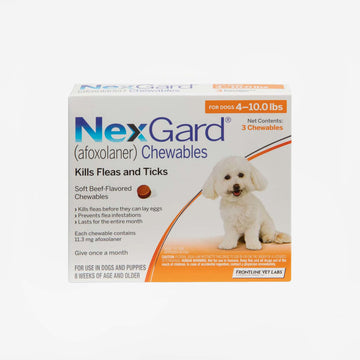
NexGard Chewables - 3 Months (Rx)
$91.39 / unit
20% off for a limited time Use code FLEATICK20Multiple options available
-
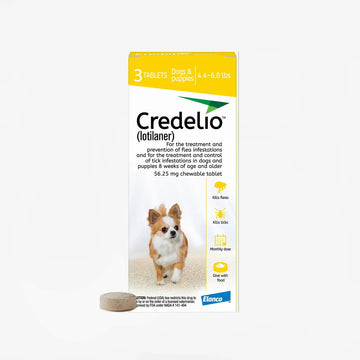
Credelio - 3 months (Rx)
$84.56 / unit
20% off for a limited time Use code FLEATICK20Multiple options available
-
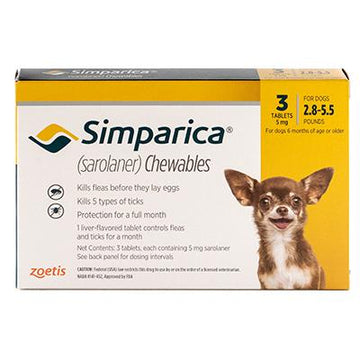
Simparica Chewables - 6 months (Rx)
$123.49 / unit
20% off for a limited time Use code FLEATICK20Multiple options available
-

NexGard Chewables - 6 Months (Rx)
$160.89 / unit
20% off for a limited time Use code FLEATICK20Multiple options available
-
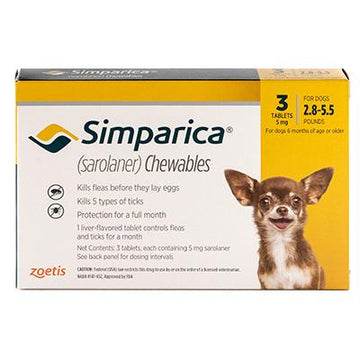
Simparica Chewables - 3 months (Rx)
$69.37 / unit
20% off for a limited time Use code FLEATICK20Multiple options available
-
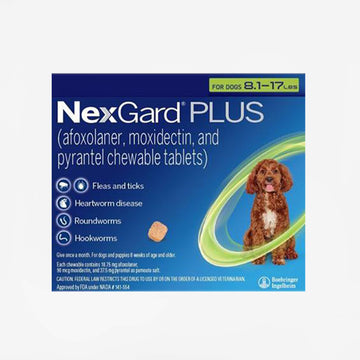
Nexgard PLUS for Dogs - 3 months (Rx)
$115.19 / unit
20% off for a limited time Use code FLEATICK20Multiple options available
-
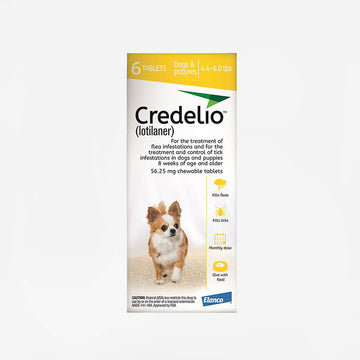
Credelio - 6 months (Rx)
$159.54 / unit
20% off for a limited time Use code FLEATICK20Multiple options available
-
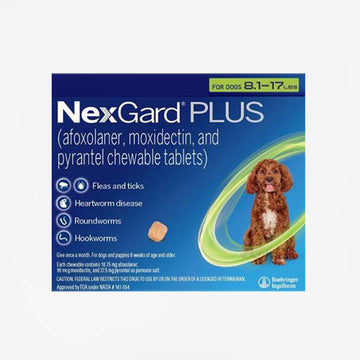
Nexgard PLUS for Dogs - 6 months (Rx)
$214.19 / unit
20% off for a limited time Use code FLEATICK20Multiple options available
-
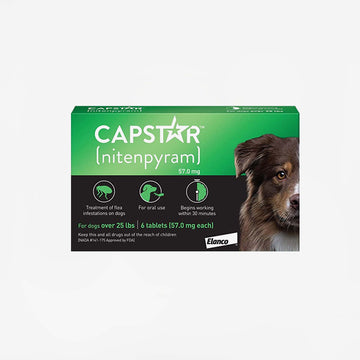
Capstar Flea Oral Treatment for Dogs, over 25 lbs
$34.65 / unit
20% off for a limited time Use code FLEATICK20 -
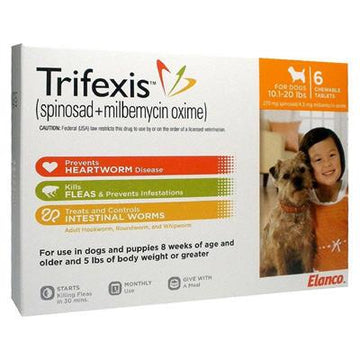
Trifexis for Dogs (Rx)
$154.09 / unit
20% off for a limited time Use code FLEATICK20Multiple options available
-
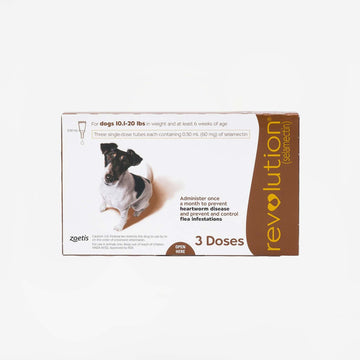
Revolution for Dogs 3-months (Rx)
$100.33 / unit
20% off for a limited time Use code FLEATICK20Multiple options available
-
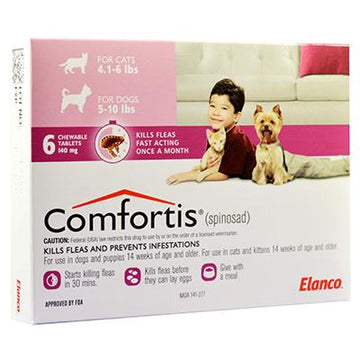
Comfortis (Rx)
$124.69 / unit
20% off for a limited time Use code FLEATICK20Multiple options available
-
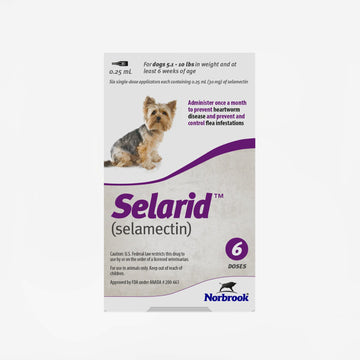
Selarid for Dogs - 3 months (Rx)
$38.85 / unit
20% off for a limited time Use code FLEATICK20Multiple options available
-
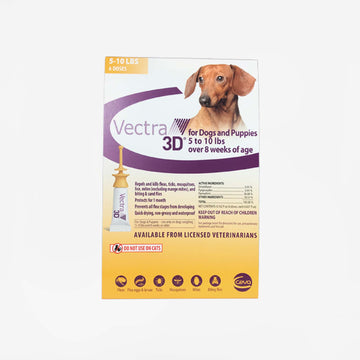
Vectra 3D - 3 months
$44.99 / unit
20% off for a limited time Use code FLEATICK20Multiple options available
-
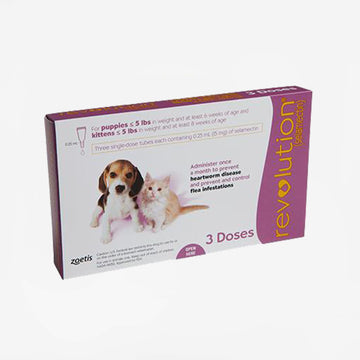
Revolution for Puppies & Kittens - 3 months (Rx)
$76.30 / unit
20% off for a limited time Use code FLEATICK20 -
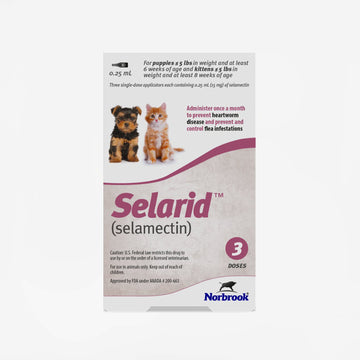
Selarid for Puppies & Kittens - 1 month (Rx)
$12.93 / unit
20% off for a limited time Use code FLEATICK20 -
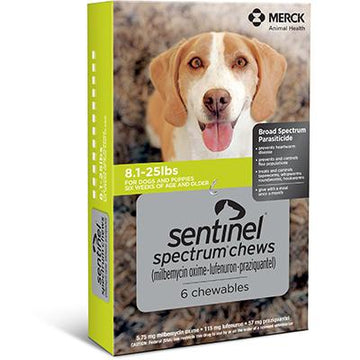
Sentinel SPECTRUM Chews (Rx)
$51.99 / unit
20% off for a limited time Use code FLEATICK20Multiple options available
-
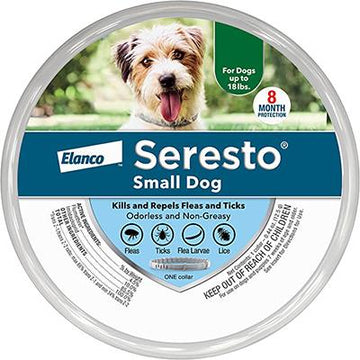
Seresto Collar for Dogs
$59.99 / unit
20% off for a limited time Use code FLEATICK20Multiple options available
- 1
- 2
Frequently asked questions
How do I know if my dog has fleas?
How do I know if my dog has fleas?
Dogs with fleas are excessively itchy. You may see them scratch their fur or rub up against objects in the home more often. In addition, flea bites leave marks, so you may notice red bumps on your dog’s skin under their fur. When left untreated, fleas can cause hair loss, scabs, and painful lesions because dogs can’t stop scratching themselves. Some pet parents even see fleas jumping off their dogs in their homes.
Unfortunately, you won’t truly know if your dog has fleas until you have them diagnosed by a vet. There are many causes of itchy skin in dogs, ranging from allergies to ear infections, mange, and even anxiety. Therefore, you should not treat your dog’s itching at home until you know the cause. For example, your vet may prescribe allergy medicine for dogs if your dog suffers from allergies. Meanwhile, you may receive anti-itch medicine for dogs if they’re itching due to dry skin. Once your vet diagnoses your dog with fleas, they’ll prescribe either oral or topical flea medicine for dogs.
What’s the difference between pills, chewable, and topical flea treatments?
What’s the difference between pills, chewable, and topical flea treatments?
After your dog is diagnosed, you’ll need to choose between pills, chewables, and topical flea treatments. They all have pros and cons, which you can discuss directly with your vet.
- Topical flea treatment for dogs: Topical flea treatment for dogs includes shampoos, powders, and spot treatments. Some are more effective than others, with spot treatments being the most effective topical flea treatments for dogs because they eliminate fleas, larvae, and eggs and protect your pet for around 30 days.
- Oral flea treatment for dogs: Oral flea treatments for dogs can come in pill or chewable forms. Which is best for your dog depends on which they’re more likely to eat. Some dogs prefer chewable forms that are flavored and resemble their other treats. Oral flea and tick prevention for dogs is the most successful in eliminating and preventing fleas, but the best ones require a prescription from your vet. After you give your pet oral dog flea treatment, they’ll be protected for thirty days.
- Flea collars: Another option is flea collars which can prevent parasites by using chemicals released into the dog’s skin. Flea collars are worn around the neck and can be useful when you need more time to eliminate fleas from around your home. However, they can also be dangerous because some cause GI issues and skin irritation.
How often do I need to treat my dog for fleas?
How often do I need to treat my dog for fleas?
Once your dog is diagnosed with fleas, they’ll need to receive multiple treatments to rid them of the infestation. If you’re using spot-on treatments, this may mean multiple uses before the infestation is completely eradicated. However, if you’re using oral flea medicine for dogs, you only need to give your dog a monthly dose to be protected year-round since they protect them for 30 days.
It’s important to note that you should not give your dog flea medicine for cats or allergy meds for cats because they contain different ingredients that may be toxic.
How can I prevent fleas on my dogs?
How can I prevent fleas on my dogs?
While fleas are small and virtually undetectable, there are several ways you can protect your pets and yourself from fleas, including the following:
- Bathe and brush pets regularly
- Check for fleas and flea bites on the skin
- Use flea and tick prevention for dogs year-round
Fleas prefer warm, humid, and dark environments like leaves, trees, and grass. Unfortunately, you can’t prevent your dog from spending time outside, so you should keep them protected with preventative products year-round, even in the winter.
How can I stop fleas from spreading to my house and other pets?
How can I stop fleas from spreading to my house and other pets?
Unfortunately, by the time you realize your dog might have fleas, they may have spread it to other pets and people throughout the household. Fleas jump, so they can be virtually anywhere. However, if your dog is being treated for fleas and another pet hasn’t gotten them, your vet will recommend that all household pets be treated for fleas to prevent a growing infestation.
Dutch can diagnose and treat fleas on dogs and cats from the comfort of your own home. In addition, we can deliver pet prescriptions like anti-itch medicine for cats and dogs right to your door to reduce itching, prevent fleas and ticks, and protect your pets.





















